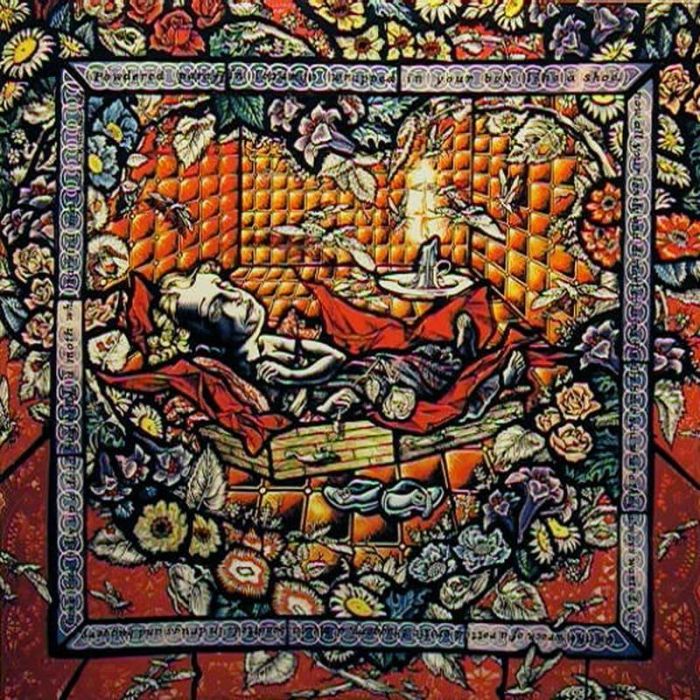A House for the Dead and a Porch for the Dying by David E. Williams (Review)

Like his other release, Hello Columbus, A House for the Dead and a Porch for the Dying is full of tales of misanthropy-as-love, twisted religious icons, and lyrical wit so sharp and pointed, you might get a papercut just opening the case. And that’s all fine and dandy. However, unlike, Hello Columbus, A House… is a full-length album of this stuff.
I like twisted lyrics and black humor as much as the next guy… which probably explains why I think the end of A Boy and His Dog is one of the most perversely genius moments in cinematic history. But for all of his plays on words and clever rhymes, Williams seems to be too clever. And I can only listen to so much of the album before becoming sick — not because of the rich decadence of Williams’ songwriting — but that it’s just laid on so thick. After awhile, dark and twisted humor loses its punch and flavor and becomes, well, just dark and twisted.
I can only take so much of songs about dead mothers (“Shadowy Lesbian Photograph”), incest (“Widower”), and bitter lovesongs so vengeful as to be cruel (“In Sickness And In Sickness” and “Severed Hand Holding Daisies”). After awhile, you just want to hear a sweet little lovesong where everything works out between the boy and girl, without him turning into a “Prince of Fiends” and her into a “prostitute who somewhat resembled a kidney.”
I liken it to a David Lynch film. Lord knows they’re as bizarre and freakish as all get-out, but there’s always a few moments that get you grinning, that let you know there’s a cleverness going on. And I catch glimpses of that on songs like “Little Sap and Varicose.” And to his credit, as much as Williams writes about twisted (how many times have I used that word in this review), broken characters and the blasted world they inhabit, I don’t get the feeling that he’s doing so to be cruel or shocking, no matter how much his lyrics reflect that. It almost seems comical, in a Mervyn Peake sort of way. Still, I’m afraid to ask where Williams gets his inspiration.
As with Hello Columbus, if you’re of a sensitive disposition, you won’t like this album. Trust me. And even if you have a thick skin, some of the imagery is still quite, ah, disturbing. Even musically, with Williams’ booming, drunken sailor vocals over heavy electronics, post-punk guitars, and a curious pop sense, it’s a bit much to take in. If anything, I do enjoy the fact that even as his album is bound to labelled “gothic,” Williams skirts that genre in a way that’s much more lyrical and witty than the normal stereotypes associated with the genre.